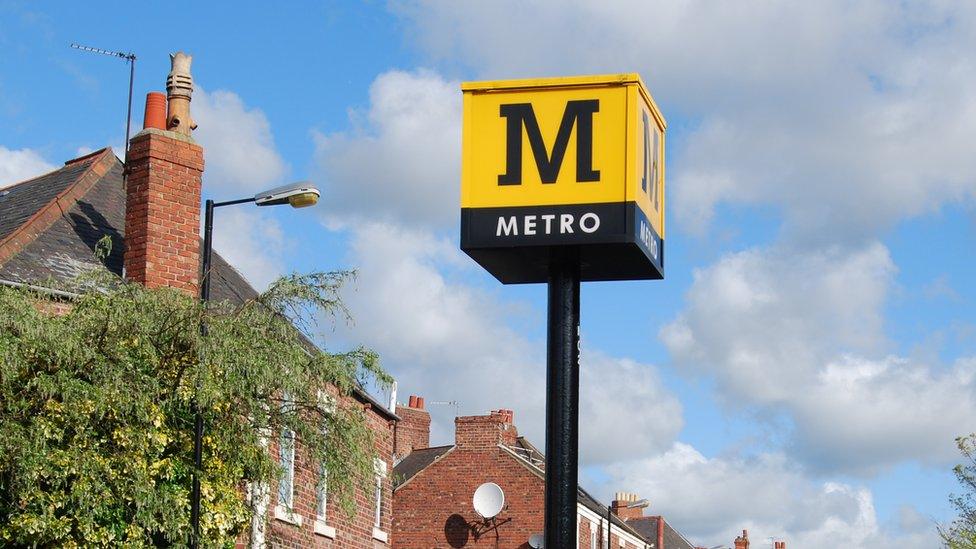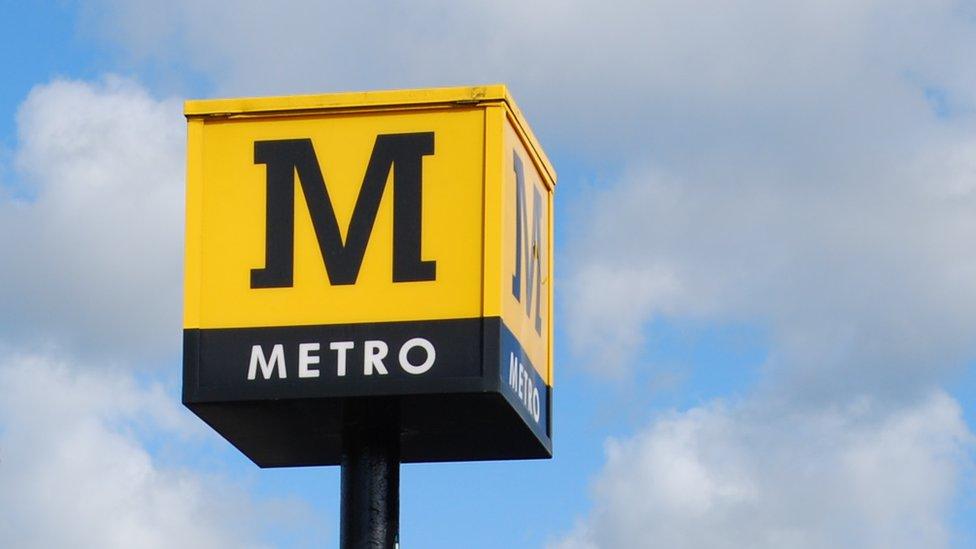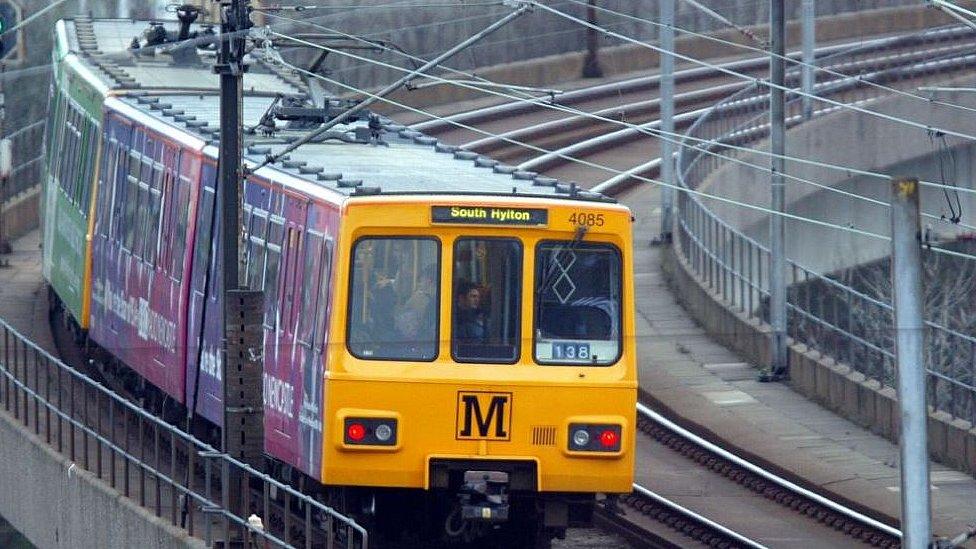Tyne and Wear Metro crew overtime ban starts in pay dispute
- Published

The system carries more than 40 million passengers a year on 450 trains
Train crews on the Tyne and Wear Metro have started an overtime ban which is expected to disrupt services.
The industrial action comes after the RMT and Aslef unions rejected a 15% pay increase and changes in rostering arrangments.
Metro operator Nexus said the ban was "damaging and unjustified".
The RMT said further talks had not achieved a settlement. Aslef said an overtime ban would have no effect if Nexus employed enough drivers.
Nexus warned trains could be busier, run less frequently or be cancelled altogether.
Services director Chris Carson said he was "extremely disappointed" the unions had rejected the offer.
"Metro is a publicly-owned railway; it does not make any profit and it can only operate thanks to significant subsidy paid by taxpayers.
"What the unions are demanding is simply unaffordable and unrealistic."
'Haemorrhaging drivers'
Keith Richmond, from Aslef, said the Metro was "haemorrhaging drivers because they don't pay them enough".
"No driver is required to work overnight; we do it voluntarily because it helps the company run its services," he said.
To reduce the reliance on overtime to cover shifts, Nexus said it had doubled the number of train crew trainees to 48 a year.
RMT regional organiser Micky Thompson said despite "lengthy, but constructive and amicable discussions" on Thursday, no agreement had been reached.
"As always we remain committed to finding a suitable resolution and remain available for meaningful negotiations," he said.
Nexus said passengers would be entitled to a full refund if journeys took more than 15 minutes longer than they should.

Follow BBC North East & Cumbria on Twitter, external, Facebook, external and Instagram, external. Send your story ideas to northeastandcumbria@bbc.co.uk.
- Published14 November 2019

- Published25 January 2018
